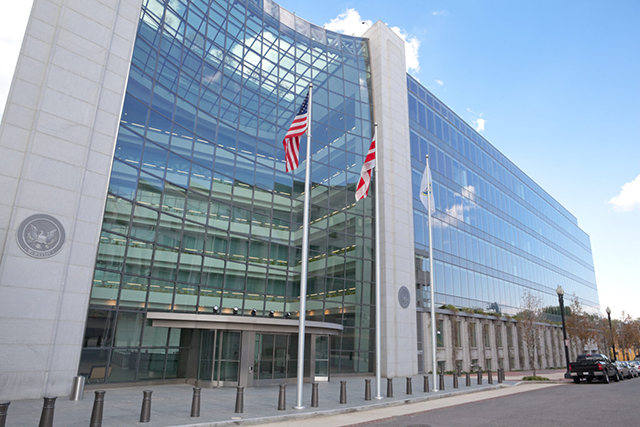 The SEC, or U.S. Securities and Exchange Commission, is an independent federal agency responsible for regulating the securities industry and enforcing federal securities laws in the United States. Established by the U.S. Congress in 1934 in response to the stock market crash of 1929 and the subsequent Great Depression, the SEC’s primary mission is to protect investors, maintain fair and efficient markets, and facilitate capital formation.
The SEC, or U.S. Securities and Exchange Commission, is an independent federal agency responsible for regulating the securities industry and enforcing federal securities laws in the United States. Established by the U.S. Congress in 1934 in response to the stock market crash of 1929 and the subsequent Great Depression, the SEC’s primary mission is to protect investors, maintain fair and efficient markets, and facilitate capital formation.
Key Functions of the SEC
- Investor Protection:
- Preventing Fraud: The SEC enforces laws to prevent fraud and deceptive practices in the securities markets.
- Disclosure Requirements: Companies must provide accurate and timely information about their financial performance and business operations to investors.
- Maintaining Fair and Efficient Markets:
- Market Regulation: The SEC oversees the conduct of securities exchanges, brokers, and dealers to ensure fair trading practices.
- Rule Enforcement: The SEC enforces regulations that govern market behavior, ensuring that participants comply with legal standards.
- Facilitating Capital Formation:
- Encouraging Investment: By creating a transparent and trustworthy environment, the SEC helps companies raise capital through public offerings and private placements.
- Regulating Public Offerings: The SEC oversees initial public offerings (IPOs) and secondary offerings to ensure compliance with securities laws.
Structure of the SEC
The SEC is composed of five commissioners appointed by the President of the United States, with no more than three commissioners from the same political party. The President designates one of the commissioners as the Chairman. The SEC operates through several divisions and offices, each focusing on different aspects of securities regulation:
- Division of Corporate Finance:
- Reviews corporate filings to ensure that investors receive accurate and complete information for decision-making.
- Division of Trading and Markets:
- Oversees securities markets and participants, ensuring fair and efficient trading.
- Division of Investment Management:
- Regulates investment companies and investment advisers to protect investors.
- Division of Enforcement:
- Investigates and prosecutes violations of securities laws, such as insider trading and accounting fraud.
- Division of Economic and Risk Analysis:
- Provides economic analysis and data to support the SEC’s policymaking and enforcement efforts.
Major Acts Administered by the SEC
- Securities Act of 1933:
- Requires companies to register securities with the SEC and provide financial and other significant information to potential investors.
- Securities Exchange Act of 1934:
- Established the SEC and governs the trading of securities after their initial issuance, including regulations for exchanges, brokers, and dealers.
- Investment Company Act of 1940:
- Regulates the organization and activities of companies, including mutual funds, engaged in investing and trading securities.
- Investment Advisers Act of 1940:
- Regulates investment advisory firms and their practices, requiring registration and adherence to fiduciary standards.
- Sarbanes-Oxley Act of 2002:
- Enhances corporate governance and financial disclosure standards for public companies and their executives to prevent accounting fraud.
- Dodd-Frank Wall Street Reform and Consumer Protection Act of 2010:
- Aims to increase transparency and accountability in the financial system, with significant provisions affecting the SEC’s regulatory authority.
Recent Initiatives and Focus Areas
- Cryptocurrency Regulation:
- The SEC is actively working on establishing a regulatory framework for cryptocurrencies and digital assets, balancing innovation with investor protection.
- Environmental, Social, and Governance (ESG) Disclosures:
- Increasing focus on requiring companies to disclose ESG-related information to provide investors with a comprehensive understanding of their sustainability practices and impact.
- Cybersecurity and Data Protection:
- Emphasizing the importance of robust cybersecurity measures for firms and exchanges to protect sensitive financial data and investor information.
Importance of the SEC
- Investor Confidence: By enforcing securities laws and regulations, the SEC helps maintain investor confidence in the financial markets, which is crucial for economic growth and stability.
- Market Integrity: The SEC’s oversight ensures that markets operate fairly and efficiently, minimizing the risk of manipulation and fraud.
- Economic Growth: By facilitating capital formation and investment, the SEC contributes to innovation and economic development.
Conclusion
The U.S. Securities and Exchange Commission (SEC) plays a vital role in the regulation and oversight of the U.S. securities markets, ensuring transparency, fairness, and investor protection. Through its comprehensive regulatory framework and enforcement efforts, the SEC helps maintain the integrity and stability of the financial system, fostering trust and confidence among market participants.







